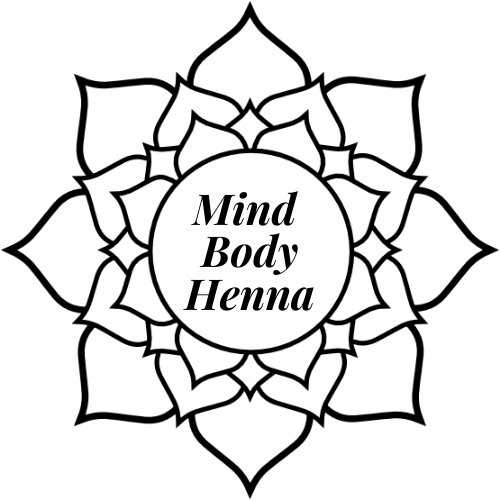This is the #1 question that I get asked at events collectively by Black, White and Latina women in a lowered, unsure, whispered voice- “Is ok for me to wear henna?” I definitely understand your need to know. That’s why I want to help clear up what might be a misunderstanding for some.
Let’s say you are also someone that loves the idea of henna, loves how it looks on the skin, wants to wear it but feels it may not be…...well…...appropriate or respectful to other cultures. Maybe you feel that since you weren’t raised in a henna wearing culture that it’s not ok or that it’s only for people from South Asia, Africa or the Middle East. Or maybe you feel that it’s disrespectful to wear henna because you don’t know much about it and think that you’re doing something wrong or possibly even being offensive. Yikes!
This blog post isn’t my personal opinion but instead a collective gathering of perspectives of women of color from various regions, religions and cultural backgrounds that grew up wearing henna and now have become modern henna artists of today.
What you really want to know is: Is wearing henna cultural appropriation? This is a question that doesn’t have one clear cut answer and it also depends on who you ask. Within the many global henna artist communities that range from women of various cultures, religions and races, cultural appropriation and wearing henna are viewed as two very separate things.
Many henna artists from all over the world believe that henna is available and wearable to everyone regardless if they’re of a culture that wears henna for cultural or religious occasions. Henna is seen at its core as an art medium and it is welcomed to be used by or worn by anyone that enjoys art. Henna is also meant to be enjoyed by wearing it with or without any particular occasion in mind. However, as we already know, women within eastern cultures enjoy wearing henna particularly assigned to holidays, special occasions and observances during various times of the year.
It’s also typical for people that have grown up in western cultures that are learning about henna to come from a place of wanting to be respectful, understanding and knowledgeable about what henna is. And why it’s seen by the global henna artist community to be more than ok to wear henna not just as part of cultural experience but also as a beauty treatment as somebody would get their nails, hair, lashes, eyebrows or make-up done professionally.
A relatable association could be this: Over the years, I personally have known families that were Hindu, Jewish, Buddhist, Muslim, and Sikh. Even though these families don’t celebrate Christmas as part of their religion, many families still took part in certain aspects of fun Christmas-related rituals such as: gift giving, tree decorating and enjoying some traditional foods. These families were taking part in the fun aspects of a certain time of year. These fun Christmas-related experiences aren’t owned by anyone and therefore are free to be enjoyed by all. With that being said, gift-giving can happen for any reason or occasion. Turkey dinner is not only for particular gratitude holidays but can be enjoyed any day of the year by anyone that wants it.
This is how the global henna artist community sees the enjoyment of giving and receiving henna for those that are both tied to henna through culture and those that aren’t. Now that you know the answer to the questions that was posed at the beginning of this post, I hope that you’ll feel that you can also enjoy having your henna done without the uncertainty in the back of your mind.
Or if you’re ready for your first henna session, I’d love to meet you and give your first henna experience. You can book your session here: www.mindbodyhenna.com/book-now .
XO,
Mind Body Henna

